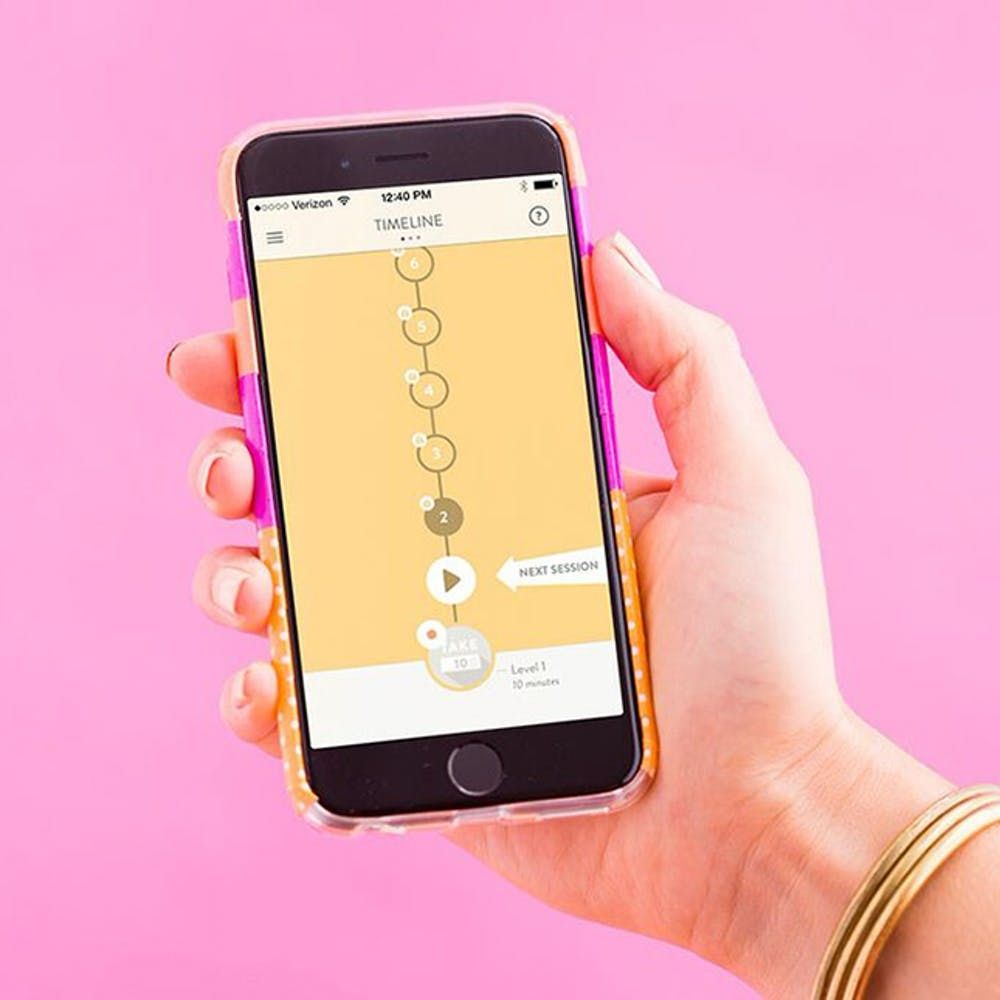In this day and age, your smartphone probably feels like an extension of your physical body. You’re constantly swiping left and right to tune into urgent work emails, tapping into texts to catch up with friends and scrolling through your Twitter feed to stay on top of news. The troubling thing is that even though your smartphone adds so much goodness to your life, it can also have a sneaky negative effect on your wellbeing. Here, experts offer some intel on potential health consequences that can grow from spending too much QT with your smartphone.
1. Tech neck: Think of your smartphone as a time machine for your neck, except instead of taking it back a few years and making it look wrinkle-free, it does the exact opposite. “Even my younger patients are demanding Botox to treat tech neck, or the premature wrinkles that form from being hunched over an iPhone for hours,” said Stuart H. Kaplan, M.D., a dermatologist based in Beverly Hills. This happens because every single time you bend your head to check out your Facebook notifications, the skin on your neck creases. “Combined with skin gravity and laxity as you age, the repetitive motion causes those creases to deepen and eventually remain creased even when you are at rest,” he said.
Let’s be real. You are obviously worth so much more than your looks, but it’s still frustrating to see one part of your body age so much faster than it should because of one little device.
Avoid it: Try yoga. “Yoga poses that focus on lengthening the neck and strengthening the muscles in your shoulders, upper back, and the back of your neck can help you become more conscious of this effect,” said Kaplan.
2. A slipped disc: If anyone has a lot to say about the danger of keeping your eyes glued to your smartphone, it’s Kenneth Hansraj, M.D., chief of spine surgery at New York Spine Surgery and Rehabilitation Medicine. “We did a study that shows when you’re looking straight, your head is a little more than 10 pounds,” said Hansraj. The research then found if you gaze down at your phone at an angle of 60 degrees (a typical angle at which you’d check out your cell), you can multiply that number by six. “Because of force, the pressure on your neck is multiplied. Over time, that can lead to rips and tears in the spaces between your neck discs,” he said. Those can potentially cause a whole host of issues like a slipped disc, or in extreme cases, arthritis.
Avoid it: Fix that posture. “Simply put, good posture is having your head straight up with your ears above your shoulders and your chest open. Think of it as having your angel wings contracted,” said Hansraj. As a bonus, renowned researcher Amy Cuddy, Ph.D., shows that kind of posture can produce a boost in testosterone, aka increase your self-confidence even in a scary professional situation.
The good thing is you don’t need to hold your phone straight up in front of you to avoid these disarming negative effects. Instead, prop your elbows up on whatever you can, like a pillow or your desk, and incorporate your eyeballs. “It should be a marriage of raising your device and looking down at it without lowering your head,” said Hansraj.
3. Strained vision: If you’re a smartphone fanatic, deteriorating eyesight might hit sooner than you’d like. According to The Vision Council’s 2015 Digital Eye Strain Report, your phone can easily take a toll on your peepers. The results show that 37 percent of millennials spend at least nine hours on a digital device every day, and almost seven in 10 millennials report symptoms of digital eye strain. Those include problems like redness, irritation or dry eyes, and can even extend into headaches, fatigue and constantly straining to make out small fonts.
Avoid it: Take plenty of breaks so your eyes aren’t constantly trained on a teeny-tiny screen! And avoid using your smartphone right before bed, since the blue light the screen emits can disrupt sleep.
For extra safeguarding, every time after you compose an entire email on your smartphone or spend 10 minutes browsing through Pinterest for desk space ideas, try Hansraj’s neck stretches: Tilt your chin up to the sky to stretch your neck backwards, then return to center. Turn your head to the right as far as it can go, to the left as far as it can go, and after that, tilt your head to the right and to the left. Hold each stretch for 5 – 10 seconds to feel the good vibes.
4. Loneliness: Whether it’s in the supermarket checkout line or an informational interview, you probably turn to your phone whenever you feel awkward. Either way, you’re taught to fend off in-person discomfort with digital connectivity. Too bad that doesn’t work. “Using a smartphone so much changes your ability to socialize with other people,” said Gary Clayman, M.D. When you’re so used to dealing with people online, interacting with them in the real world can make you feel off-kilter.
Plus, according to Clayman, “The inability to disconnect means you’re constantly available, which can increase your stress level.” Chances are you don’t want to deal with a boost in anxiety combined with an unfamiliarity with talking to actual human beings!
Avoid it: This one is simple. Put your phone away and talk to people! “Texting and sending e-mails are not equivalent to verbal communication,” said Clayman. Not only will you avoid some of the physical and mental repercussions of depending on your smartphone 24/7, but the people you talk to will feel like they’ve got your full attention when your phone’s tucked into your pocket. That’s a textbook example of a win-win.”
Have you ever experienced tech neck? Share your thoughts + experiences in the comment section below.
This post was originally published on Levo League by Zahra Barnes.
